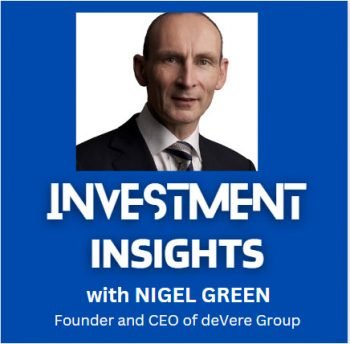 The rise of weight-loss drugs like Ozempic and Wegovy is reshaping multiple aspects of daily life, from what we eat and wear to how we think about health.
The rise of weight-loss drugs like Ozempic and Wegovy is reshaping multiple aspects of daily life, from what we eat and wear to how we think about health.
These profound societal shifts are creating lucrative opportunities for investors ready to capitalize on this emerging theme in 2025.
Changing face of lifestyle consumption
These drugs, originally developed to treat Type 2 diabetes, have been widely adopted for weight management, leading to significant shifts in food consumption patterns.
For example, reports verify that restaurants are adapting menus to cater to smaller appetites, and grocery retailers are seeing increased demand for low-calorie, nutrient-dense foods.
Companies like Nestlé and Unilever are doubling down on healthier product lines, anticipating this growing trend.
Fast-food chains are also evolving. According to recent data, major players like McDonald’s are exploring lighter menu options to remain competitive in a market where consumers are eating less.
Investors should watch for stocks in the health-focused food sector as this segment accelerates its growth trajectory.
Reinventing celebrations, travel, and fashion
Traditionally food-centric celebrations, such as holidays and birthdays, are shifting. Many individuals on weight-loss drugs report a reduced desire for indulgent meals.
We believe that this could impact the hospitality and catering industries while boosting the appeal of alternative experiences like wellness retreats or active holiday packages. Travel companies focused on adventure and fitness tourism are expected to flourish in this environment.
The fashion industry, too, is being reshaped. With many consumers shedding significant weight, demand for new wardrobes is rising.
Major retailers like LVMH and Zara are seeing increased sales of clothing designed for slimmer silhouettes, reflecting the trend. This phenomenon could reinvigorate consumer spending in the fashion sector.
Health and beauty
Beyond physical changes, weight-loss drugs are altering societal perceptions of health and beauty. The conversation has shifted from dieting fads to medical solutions that yield tangible results. This paradigm shift is opening doors for cosmetic companies and gyms that promote holistic wellness rather than extreme transformations.
For instance, gym chains such as Planet Fitness are pivoting their marketing to include lighter fitness routines aimed at maintaining health rather than aggressive weight loss.
Meanwhile, cosmetic brands are expanding into skincare products targeting users undergoing rapid weight changes.
Investment opportunities in healthcare and beyond
The pharma giants behind these drugs—Novo Nordisk (Ozempic, Wegovy) and Eli Lilly (Mounjaro)—are poised to remain dominant players. Analysts predict continued revenue growth, with reports indicating global sales of weight-loss medications could exceed $50 billion annually by 2030.
However, the ripple effects extend far beyond healthcare. Venture capital firms are funding startups that address complementary needs, such as weight-management apps and personalized nutrition services.
Wearable tech companies like Fitbit are also innovating in response to this health-focused wave, presenting additional opportunities for investors.
CEO insights
Prominent CEOs are taking note of these seismic shifts. Bernard Arnault, CEO of LVMH, recently remarked on the “unprecedented changes in consumer preferences” impacting luxury and fashion sectors, calling it “a historic opportunity for reinvention.”
Meanwhile, Novo Nordisk’s CEO Lars Fruergaard Jørgensen has highlighted the transformative potential of their therapies, stating: “We are witnessing a paradigm shift in how society approaches weight and health.”
These insights underscore the importance of aligning portfolios with sectors poised for growth.
From healthcare and retail to tech and experiential services, the effects of weight-loss drugs are just beginning.
Investors in 2025 must look beyond traditional healthcare stocks to sectors like fitness, fashion, and food that are adapting to this transformation.
Nigel Green is deVere CEO and Founder
Also published on Medium.
Notice an issue?
Arabian Post strives to deliver the most accurate and reliable information to its readers. If you believe you have identified an error or inconsistency in this article, please don’t hesitate to contact our editorial team at editor[at]thearabianpost[dot]com. We are committed to promptly addressing any concerns and ensuring the highest level of journalistic integrity.




